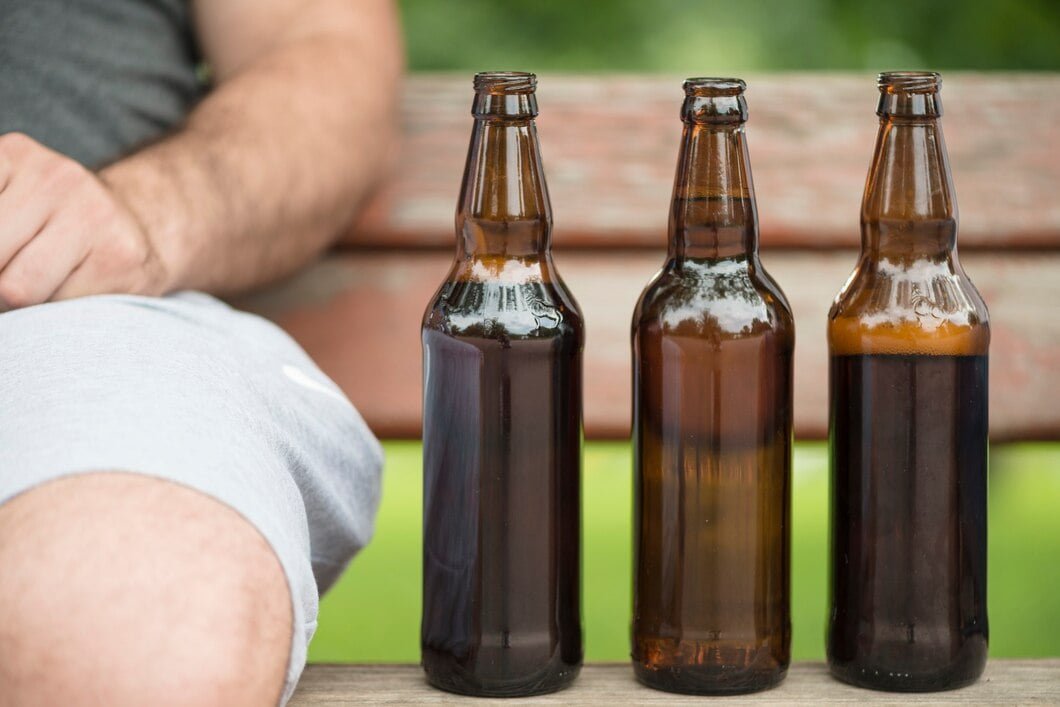Bariatric surgery, a life-changing procedure for individuals struggling with obesity, often leads to significant weight loss and improved health outcomes. However, post-surgery, patients must adhere to specific dietary and lifestyle guidelines to ensure optimal recovery and long-term success. One critical aspect of post-bariatric surgery care is understanding the potential risks associated with alcohol consumption, including whether alcohol can cause ulcers after bariatric surgery.
Understanding Bariatric Surgery and Its Effects
Bariatric surgery encompasses various procedures aimed at reducing the size of the stomach or rerouting the digestive system to promote weight loss. These surgeries are highly effective but require lifelong changes in diet and lifestyle to maintain results and avoid complications.
Alcohol Consumption Guidelines Post-Bariatric Surgery
Alcohol affects the body differently after bariatric surgery due to changes in how the stomach absorbs and processes nutrients. Here are key points to consider regarding alcohol consumption:
Increased Sensitivity
Post-surgery, patients typically experience heightened sensitivity to alcohol. The reduced stomach size and altered digestion mean that alcohol reaches the bloodstream more quickly and in higher concentrations than before surgery.
Risk of Ulcer Formation
One significant concern related to alcohol consumption after bariatric surgery is its potential to contribute to ulcer formation. Ulcers are open sores that develop on the lining of the stomach or small intestine and can lead to complications if not managed properly.
Can Alcohol Cause Ulcers?
The relationship between alcohol consumption and ulcers after bariatric surgery is complex. While alcohol itself does not directly cause ulcers, it can exacerbate existing conditions or create an environment conducive to ulcer development. Here’s how:
Increased Acid Production
Alcohol can stimulate the production of stomach acid, which, combined with other factors like NSAID use (common in post-surgery pain management), can irritate the stomach lining and potentially lead to ulceration.
Delayed Healing
Alcohol consumption can impair the body’s ability to heal and repair tissues, including the delicate stomach lining. This delayed healing process can contribute to the persistence or worsening of ulcers.
Guidelines for Alcohol Consumption After Bariatric Surgery
To minimize the risk of ulcers and other complications, healthcare providers typically recommend the following guidelines regarding alcohol consumption:
Abstinence During Initial Recovery
Immediately after surgery, patients are often advised to abstain from alcohol completely to allow the body to heal and adjust to the changes.
Moderation and Dilution
Once cleared by their healthcare team, patients may reintroduce alcohol in moderation. Diluting alcoholic beverages with water or low-calorie mixers can help reduce the concentration of alcohol entering the bloodstream quickly.
Avoid Mixing with NSAIDs
Non-steroidal anti-inflammatory drugs (NSAIDs) are known to increase the risk of ulcers. Patients are advised to avoid combining alcohol with NSAIDs to prevent potential stomach irritation and ulceration.
Regular Monitoring
Patients should undergo regular check-ups with their healthcare providers to monitor any signs of ulcer development or other gastrointestinal issues.
While enjoying an occasional drink may be possible after bariatric surgery, it’s essential for patients to understand the potential risks and follow medical advice closely. Alcohol, when consumed in excess or improperly, can contribute to ulcer formation and other complications. By adhering to recommended guidelines and maintaining open communication with healthcare providers, patients can support their long-term health and wellness post-surgery. For more personalized guidance on alcohol consumption after bariatric surgery or to address specific concerns, consult your healthcare provider. Your provider can offer tailored advice based on your individual health needs and surgical history.
For comprehensive support and expert advice on managing your weight loss journey post-bariatric surgery, visit TurkeyObesity. Our clinic specializes in providing holistic care and guidance to help you achieve and maintain a healthy lifestyle.
FAQs
1. Can I drink alcohol after bariatric surgery?
Yes, but it’s important to do so in moderation. Your tolerance and how your body processes alcohol will change after surgery, so consult with your healthcare provider to understand the safe limits.
2. How does alcohol affect my body after bariatric surgery?
After surgery, alcohol is absorbed more quickly into your bloodstream, leading to quicker intoxication. It can also irritate your stomach lining and increase stomach acid production, which may contribute to the development of ulcers.
3. Can alcohol cause ulcers directly?
While alcohol doesn’t directly cause ulcers, it can irritate the stomach lining and exacerbate conditions that lead to ulcer formation, especially in a post-surgery digestive system.
4. What are the symptoms of an ulcer after bariatric surgery?
Symptoms can include stomach pain, nausea, vomiting, bloating, and, in severe cases, bleeding. If you experience any of these symptoms, it’s important to contact your healthcare provider immediately.
5. How can I reduce the risk of ulcers after bariatric surgery?
To reduce the risk, limit alcohol consumption, avoid non-steroidal anti-inflammatory drugs (NSAIDs), and follow your healthcare provider’s dietary and lifestyle recommendations.
6. Is it safe to consume alcohol occasionally after surgery?
Occasional consumption may be safe for some individuals, but it should always be done with caution. Discuss your individual case with your healthcare provider to determine what’s best for you.
7. What types of alcohol are less likely to cause problems post-surgery?
Clear spirits like vodka and gin may be less irritating to the stomach lining compared to beverages with higher acidity or sugar content, such as wine or cocktails. However, any alcohol should be consumed in moderation.
8. Can I resume drinking alcohol immediately after surgery?
No, it’s recommended to avoid alcohol for at least six months post-surgery to allow your body to heal and adjust. Always consult with your healthcare provider before resuming alcohol consumption.
9. Are there any other lifestyle changes I should make to prevent ulcers?
Yes, alongside limiting alcohol, you should avoid smoking, manage stress, follow a balanced diet, and adhere to your post-surgery dietary guidelines.
10. What should I do if I suspect I have an ulcer?
If you suspect an ulcer, seek medical attention immediately. Early diagnosis and treatment are crucial to prevent complications.

